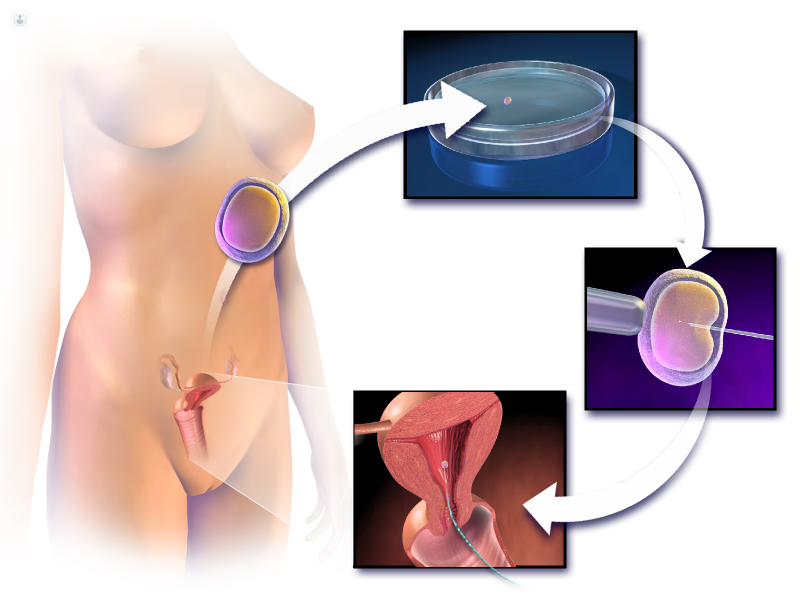What is embryo donation?
Written by:The donation of embryos or embriodonación is a treatment of assisted reproduction in which are transferred to the uterus of a woman donated frozen embryos. These embryos come from couples or women who have made a successful IVF treatment and have decided to donate surplus embryos.
They can only donate their embryos healthy couples with no known metabolic, genetic or infectious diseases, and where the woman is less than 36 years at the time of performing IVF.
 Couples or women seeking treatment donation of embryos often have done previously and unsuccessfully reproduction treatment. Most of these couples have been diagnosed to produce embryos bad morphological or genetic quality, or have a history of implantation failure or repeated abortions with their own embryos. The options have these pairs are:
Couples or women seeking treatment donation of embryos often have done previously and unsuccessfully reproduction treatment. Most of these couples have been diagnosed to produce embryos bad morphological or genetic quality, or have a history of implantation failure or repeated abortions with their own embryos. The options have these pairs are:
- Perform IVF cycles with donor eggs and sperm
- Embriodonación treatments do.
According to experts in assisted reproduction , both treatments have a very high probability of pregnancy and choose between one or the other is a personal decision.
Treatment of embryo donation
Embriodonación treatment can be very simple since it can be performed in a spontaneous ovulatory cycle. That is, it takes place 1 to 2 ultrasound monitoring of ovarian function, and when the woman has a preovulatory follicle ovulation causes a specific time and date. After the embryos are thawed at the right time and date for transfer to the uterus.
After ovulation often give support treatment with progesterone and implantation within 10 days of the transfer we will know whether or not pregnancy.
Differences between IVF with donor eggs and sperm and embryo donation
IVF with donor eggs and sperm can choose the physical characteristics of the two donors to resemble as much as possible recipients. In such cases the probability of pregnancy is around 60% in the first attempt and 90% in the second.
Meanwhile, in embryo donation you can not be picking the physical characteristics of the donor because the embryos already exist. Still, they try to find embryos that match race, height and blood type of the donor with the recipient couple. In this case the probability of pregnancy is around 40% in the first attempts and 90% after 4-5 attempts.
You can find more information about this treatment and its cost http://urh.es/tratamientos/donacion-de-embriones/ in http://urh.es/precios-inseminacion-artificial-fecundacion-ovodonacion/



